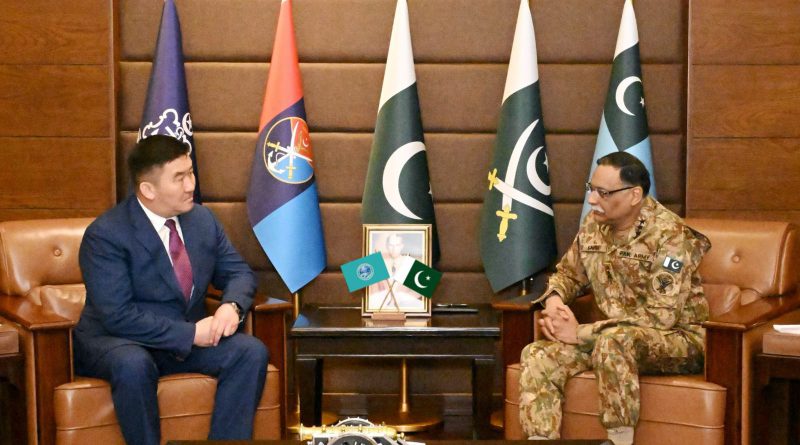Pakistan’s Counterterrorism Paradox: The Irony of Leadership and Complicity
Until Pakistan matches words with actions, its participation in regional counterterror frameworks will remain a facade.
When Pakistan assumed the chair of the Shanghai Cooperation Organization’s permanent anti-terror body, the Regional Anti-Terrorist Structure (RATS), last month, the optics were striking: a state sponsor of terrorism now overseeing a regional network tasked with combating it.
The irony is hard to ignore. For Islamabad’s international posture and domestic rhetoric to carry credibility, its territory must no longer serve as a safe haven for groups trained and funded to strike Indian soil. Yet, the evidence suggests this condition remains far from met.
Pakistan’s enduring militant ecosystem aligns closely with the country’s long-standing military doctrine of “bleeding India with a thousand cuts”—a strategy that leverages proxies and covert militants to impose costs on India while avoiding direct conventional conflict. Under this logic, groups like Jaishe-e-Mohammad (JeM) and Lashkar-e-Taiba (LeT) serve not merely ideological but strategic purposes.
If Pakistan is serious about counterterrorism, the persistence of this doctrine is inexplicable. The question remains: why does Islamabad continue to nurture a system that directly contradicts its international obligations and its stated commitment to counterterrorism?
Persistent Militant Ecosystems and Digital Adaptations
Notwithstanding India’s precision strikes on select Pakistani terrorist camps in May 2025, Pakistan’s militant ecosystems remain largely intact. Take the case of Masood Azhar-led JeM, which continues to plan operations, maintain training facilities, and innovate its fundraising mechanisms. Recent investigative reporting reveals that JeM has shifted toward digital-wallet fundraising and is attempting to rebuild as many as 313 terror hubs across Pakistan.
Despite severe losses during Operation Sindoor—which killed more than a dozen members of Azhar’s family and destroyed JeM’s headquarters in Bahawalpur—he remains defiant in his terrorist drive against India.
In a recent speech at a JeM site in Bahawalpur, Azhar announced plans to establish a women’s jihad course, Jamat-ul-Mominat. The 15-day training program reportedly aims to establish female combat units within JeM. If implemented, this can be a critical operational development for JeM, reminiscent of the Islamic State and Boko Haram, both of which have deployed women as suicide bombers and assault operatives.
Further worrying is the public conduct of the sons and successors of designated terror figures. The son of Lashkar-e-Taiba (LeT) chief Hafiz Saeed, for example, has openly defied extradition calls, using public rallies to proclaim that Pakistan will continue to shield his father while praising military operations and urging “jihad.”
An anti-regime Pakistani journalist recently reported that Talha Saeed has assumed leadership of an LeT-linked mosque in Lahore—signaling a generational shift in the group’s command and control. These are not isolated cases but part of a broader ecosystem in which religious, militant, and political networks overlap with visible impunity. Their continued prominence underscores the depth of Pakistan’s structural complicity and the normalization of militant influence in public life.
The Digital Evolution of Terror Financing
Pakistan’s counterterrorism narrative further collapses under the scrutiny of its financial oversight. While Islamabad touts its cooperation with the Financial Action Task Force (FATF), militant funding has evolved faster than its regulatory mechanisms. Groups such as JeM have reportedly shifted from traditional banking channels to fintech platforms, mobile wallets, and decentralized e-payment systems within Pakistan to sustain operations.
This digital adaptation is not evidence of militant defeat but proof of resilience. Despite a recent implicit warning from FATF President Elisa de Anda Madrazo that Pakistan’s removal from the Grey List in 2022 was not “bullet-proof” and Pakistan’s own finance minister’s admission of rampant unregulated digital transactions, terrorist financing remains largely unchecked. The shift into digital ecosystems allows militant organizations to operate under the radar, with minimal state interference or consequences.
Paradoxical Cover from the United States
Pakistan’s growing diplomatic and economic proximity to the United States may paradoxically weaken Washington’s leverage over Islamabad’s behavior. Historically, U.S. pressure has occasionally forced Pakistan’s military-intelligence establishment to rein in militant proxies. But today, the strategic calculus appears to have shifted.
As Pakistan portrays itself as a “regional counterterror partner” and a reliable economic hub, Washington remains inclined to prioritize a transactional relationship over accountability. These dynamic risks emboldening Pakistan’s military leadership, led by Field Marshal Asim Munir, to maintain its use of jihadist groups as tools of statecraft. Islamabad’s confidence that its strategic importance shields it from meaningful repercussions only deepens the challenge.
The policy risk for India and its partners is that Pakistan will use its SCO-RATS role to deflect scrutiny while continuing asymmetric operations. If training camps are allowed to be rebuilt, if digital funding networks flourish, and if terrorist rallies continue with active state approval, then Pakistan’s leadership in counterterror structures becomes an exercise in hollow symbolism rather than substantive change.
Pakistan’s claim to regional leadership in counterterrorism rests on fragile ground so long as its own territory hosts—and in many cases, protects—the very networks it purports to combat. The U.S.–Pakistan relationship, increasingly transactional and detached from shared security priorities, risks reinforcing Islamabad’s belief that it can pursue dual policies: cooperation abroad and complicity at home.
Until Pakistan matches words with actions, its participation in regional counterterror frameworks will remain a facade. The question for the international community is not whether Pakistan can change, but whether it wants to.
Disclaimer: Views expressed by writers in this section are their own and do not reflect Milli Chronicle’s point-of-view.


